Balanced Diet... Important and Benefits
What is a balanced diet?
A balanced diet is one that gives your body the nutrients it needs to function correctly. To get the proper nutrition from your diet, you should consume the majority of your daily calories in:
- fresh fruits
- fresh vegetables
- whole grains
- legumes
- nuts
- lean proteins
About calories
The number of calories in a food is a measurement of the amount of energy stored in that food. Your body uses calories from food for walking, thinking, breathing, and other important functions.
The average person needs to eat about 2,000 calories every day to maintain their weight. However, a person’s specific daily calorie intake can vary depending on their age, gender, and physical activity level. Men generally need more calories than women, and people who exercise need more calories than people who don’t.
The following examples of daily calorie intake are based on United States Department of Agriculture (USDA) guidelines:
children ages 2 to 8 years: 1,000 to 1,400 calories
girls ages 9 to 13 years: 1,400 to 1,600 calories
boys ages 9 to 13 years: 1,600 to 2,000 calories
active women ages 14 to 30 years: 2,400 calories
sedentary women ages 14 to 30 years: 1,800 to 2,000 calories
active men ages 14 to 30 years: 2,800 to 3,200 calories
sedentary men ages 14 to 30 years: 2,000 to 2,600 calories
active men and women over 30 years: 2,000 to 3,000 calories
sedentary men and women over 30 years: 1,600 to 2,400 calories
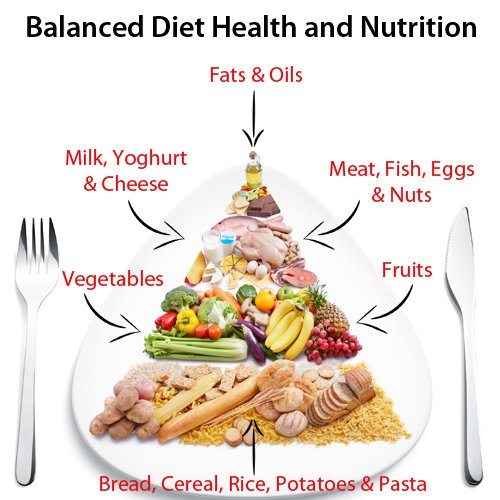
Why a Balanced Diet is Important?
A balanced diet is important because your organs and tissues need proper nutrition to work effectively. Without good nutrition, your body is more prone to disease, infection, fatigue, and poor performance. Children with a poor diet run the risk of growth and developmental problems and poor academic performance, and bad eating habits can persist for the rest of their lives. Learn more about healthy meal plans for kids.
Rising levels of obesity and diabetes in America are prime examples of the effects of a poor diet and a lack of exercise. The Center for Science in the Public Interest reports that 4 of the top 10 leading causes of death in the United States are directly influenced by diet. These are:
- heart disease
- cancer
- stroke
- diabetes

How To Achieve a Balanced Diet
At the core of a balanced diet are foods that are low in unnecessary fats and sugars and high in vitamins, minerals, and other nutrients. The following food groups are essential parts of a balanced diet.
Fruits
Besides being a great source of nutrition, fruits make tasty snacks. Choose fruits that are in season in your area. They’re fresher and provide the most nutrients.
Fruits are high in sugar. This sugar is natural, though, so fruit can still be a better choice for you than other foods with added sugar. If you’re watching your sugar intake or have a condition such as diabetes, you may want to opt for low-sugar fruits. Read on to learn about the 11 best low-sugar fruits, from citrus to peaches. People who are watching their carbohydrate intake may reach for fruits such as melons and avocadoes.
Vegetables
Vegetables are primary sources of essential vitamins and minerals. Dark, leafy greens generally contain the most nutrition and can be eaten at every meal. Eating a variety of vegetables will help you obtain the bountiful nutrients that all vegetables provide.
Examples of dark leafy greens include:
- spinach
- kale
- green beans
- broccoli
- collard greens
- Swiss chard
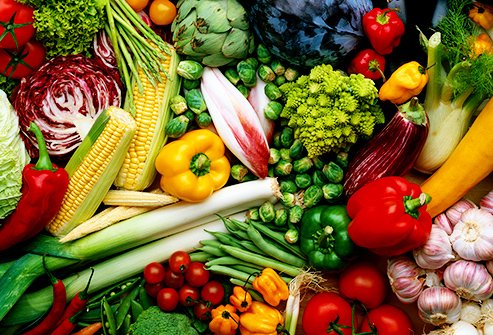
Grains
According to the USDA, Americans consume refined white flour more than any other grain. Refined white flour has poor nutritional value because the hull of the grain, or outer shell, is removed during the refining process. The hull is where the majority of the grain’s nutrition lies.
Whole grains, however, are prepared using the entire grain, including the hull. They provide much more nutrition. Try switching from white breads and pastas to whole-grain products.
Proteins
Meats and beans are primary sources of protein, a nutrient that is essential for proper muscle and brain development. Lean, low-fat meats such as chicken, fish, and certain cuts of pork and beef are the best options. Removing the skin and trimming off any visible fat are easy ways to reduce the amount of fat and cholesterol in meats. The health and diet of the animal are important and influence the fatty acid profile of the meat, so grass-fed choices are ideal.
Nuts and beans are good sources of protein and contain many other health benefits, as well as fiber and other nutrients. Try to eat:
- lentils
- beans
- peas
- almonds
- sunflower seeds
- walnuts
Tofu, tempeh, and other soy-based products are excellent sources of protein and are healthy alternatives to meat.
Dairy
Dairy products provide calcium, vitamin D, and other essential nutrients. However, they’re also major sources of fat, so it may be best to choose small portions of full-fat cheeses, and reduced-fat or fat-free milk and yogurt. Plant-based milks, such as those made from flaxseed, almonds, or soy are typically fortified with calcium and other nutrients, making them excellent alternatives to dairy from cows.
Oils
Oils should be used sparingly. Opt for low-fat and low-sugar versions of products that contain oil, such as salad dressing and mayonnaise. Good oils, such as olive oil, can replace fattier vegetable oil in your diet. Avoid deep-fried foods because they contain many empty calories.
The USDA has an online checklist that can help you determine how much of each food group you should consume daily.
Besides adding certain foods to your diet, you should also reduce your consumption of certain substances to maintain a balanced diet and healthy weight. These include:
- refined grains
- solid fats
- saturated fats
- trans fats
- salt
- sugars
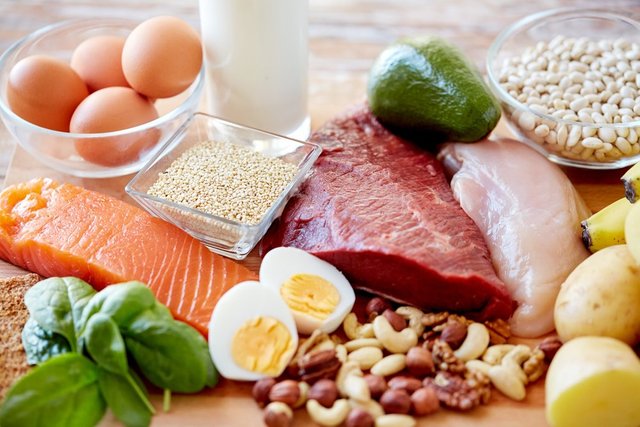
BENEFITS OF BALANCED DIET
1. Control Body Weight
Eating a healthy variety of nutrient-dense foods leaves less room for those calorie-dense foods that typically lead to weight gain. These would be such foods as, processed foods and fatty or sugary snacks that provide little nutritional value. The body has little use for these foods and will tend to store rather than use them for energy. Eating carbohydrates like whole grains, oats, vegetables, fruits, legumes, and quinoa that have a low glycemic index (ranking of carbohydrates on a scale from 0 to 100 based on how much they raise blood sugar levels after consuming) will allow the body to stay fuller over a longer period of time.
2. Fight Off Disease
When eating a balanced diet, essential nutrients will produce and help maintain key germ-fighting cells in the immune system, and greatly improve vascular function. The immune system relies heavily on blood flow, so better vascular function will help provide disease fighting cells to areas of need quickly.
3. Have More Energy
The food we eat has a tremendous impact on the energy we have throughout the day. Nutrient-dense foods will digest and therefore be released into the system over a longer period of time. On the other hand, easily digestible food (sugary/simple carbohydrates) will digest much quicker, causing the body to feel hungry again in a much shorter time frame. This can cause spikes in the release of energy into the blood stream, immediately followed by lows.
4. Sleep Better
There are few things our bodies need more then sleep. It allows our muscles to recover and replenish from the day’s activities and workouts. Sleep will rejuvenate the brain and its ability to function at a high level for the next day. Without it we feel sluggish, energy levels remain low, focus and concentration levels are affected, and cravings for less beneficial food are triggered.
5. More Brain Power
What could possibly be more important than our brains? We have an opportunity to keep it healthy and functioning at a high level based on our eating habits. Omega 3 fatty acids provide a number of important benefits, such as improved memory and the ability to learn. They also help fight against debilitating mental disorders, for example depression, dementia and schizophrenia. Foods such as, salmon, walnuts, avocado, and kiwi contain these important fatty acids.
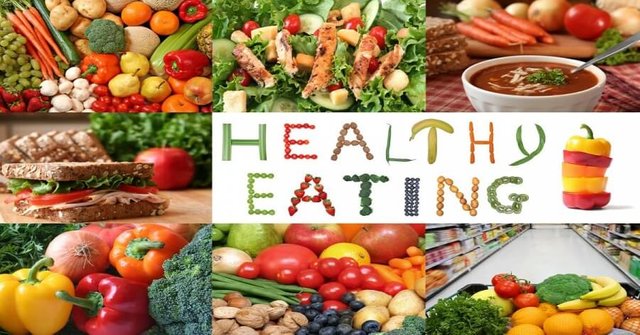
Image 1
Image 2
Image 3
Image 4
Image 5
Article Ref 1
Article Ref 2

Thanks For Viewing......

Hi. Here you have me visiting your blog. This is your publication interesting. Oh and as for your question, I'm fine thanks for asking and you? Have you seen my latest publication? @karlita
Am great as well
I will try and adopt this. Thanks for sharing.
#Hug-challenge
#Air-clinic
For more information about health and how to live a good life, kindly join us on discord via https://discord.gg/rqded5m
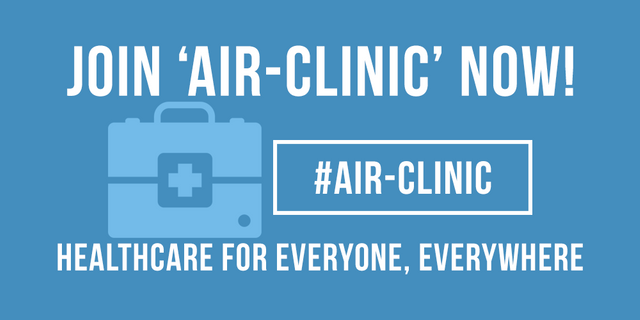 !
!